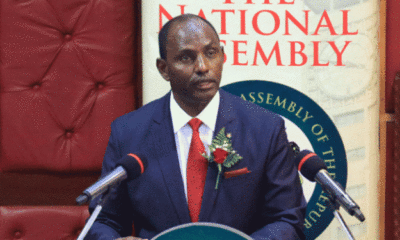

Under Rev. Makau's leadership, BCLB has failed on every count.


A review of company registration documents reveals significant changes to Compulynx's ownership structure approximately three months before the betting tax collection system change.


"Aviator and other gambling systems are not just games, they are digital diseases," said one anti-gambling advocate.


Approximately 4.7 million Kenyans-representing 17% of the population aged 15 to 65 years are grappling with some form of substance use disorder.


The headline-grabbing figure is often the full jackpot amount - sometimes advertised at Ksh 300 million - for correctly predicting all 17 matches.


Banks are pushing for changes to the law that will compel betting firms to report suspicious deposits and withdrawals from gaming accounts in the latest plan...


National Treasury Cabinet Secretary Ukur Yatani is expected to furnish the National Assembly departmental committee on Finance and National Planning with financial details, records of tax...


Telco operator Safaricom Plc. Wednesday announced an improved performance, posting 12.1 percent growth in net earnings in the first six months of the year, despite the...


All eyes will be on red-hot forward Mo Salah when Liverpool host Atletico Madrid in the Champions League this season. The Egyptian wizard has cemented his...


The penultimate Champions League match day is here starting with some scintillating games on Tuesday. Former European powerhouses Manchester United and Barcelona face tricky away games...